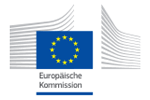Die Fragen eines (potenziellen) Gender Bias und der damit verbundenen geschlechtsspezifischen Ungleichheiten bei der Vergabe von Fördermitteln stehen seit Jahrzehnten auf der politischen Agenda. Die Ergebnisse der Studie von Wenneras und Wold aus dem Jahr 1997 zeigen beispielsweise, dass weibliche Bewerber 2,5-mal produktiver sein müssen als Männer, bevor ihr Forschungsantrag genauso bewertet wird, wie der ihrer männlichen Kollegen. In der Forschungsliteratur werden verschiedene (potentielle) Bias-Faktoren diskutiert. Einige Studien kommen dabei zu dem Schluss, dass es einen Gender Bias gebe, andere behaupten das Gegenteil. Unabhängig davon spielen heute wettbewerbliche Forschungsmittel eine immer größere Rolle für die wissenschaftliche Karriere und es lassen sich starke geschlechtsspezifische Unterschiede bei der Mittelvergabe beobachten.
Die genannten Ergebnisse und Diskussionen zeigen die Notwendigkeit sich dem Thema in einer detaillierteren Studie zu widmen. Das GRANteD -Projekt soll einen Beitrag zu einem geschlechtergerechteren Forschungsfördersystem leisten, indem es Faktoren identifiziert, die zu geschlechtsspezifischen Ungleichgewichten bei der Vergabe von Drittmitteln führen und sich somit auf die weitere wissenschaftliche Karrierechancen auswirken. Ein zentrales Ziel des Projekts ist es, einen neuen Ansatz auszuarbeiten, der der Komplexität des Forschungsgegenstands gerecht wird.
Das DZHW ist Teil eines Konsortiums von Institutionen aus fünf verschiedenen europäischen Ländern:
- JOANNEUM RESEARCH, POLICIES – Institute of Economic and Innovation Research / Research group for Technology, Innovation and Policy Consulting (Koordinator, Österreich),
- Orebro University - School of Humanities, Education and Social Sciences (Schweden),
- CSIC - Agencia Estatal Consejo Superior de Investigaciones Cientificas – Institute of Public Goods and Policies (Spanien),
- Teresa Mom Consultancy BV (Niederlande),
- Deutsches Zentrum für Hochschul- und Wissenschaftsforschung (DZHW) (Deutschland).
Das Projekt GRANteD wird aus dem Forschungs- und Innovationsprogramm der Europäischen Union „Horizon 2020“ gefördert (Grant Agreement Nr. 824574).


